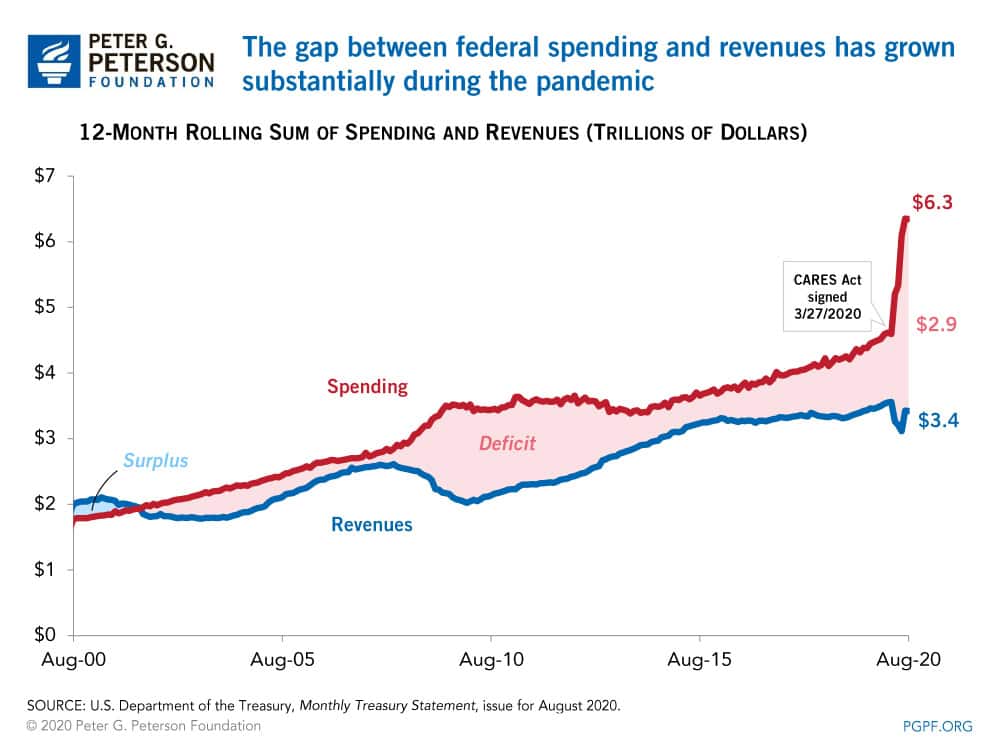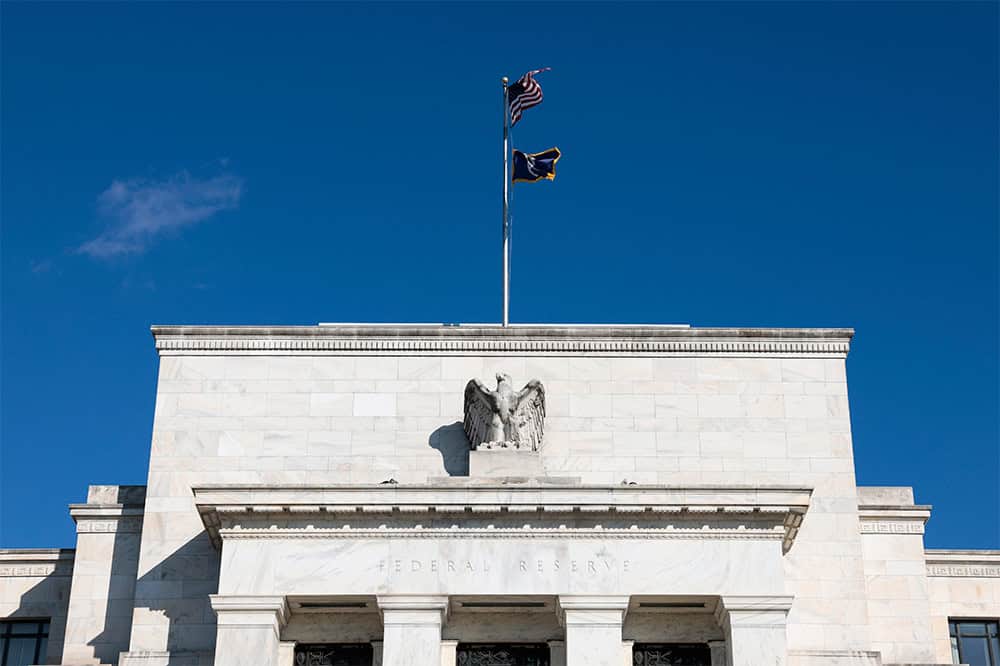The Gap Between Federal Spending and Revenues Has Grown Rapidly During the Pandemic
Last Updated October 8, 2020
The economic disruption caused by the coronavirus (COVID-19) pandemic and the federal government’s response to it has widened the gap between spending and revenues in the budget. The growth in spending has been driven by legislative actions, particularly provisions in the Coronavirus Aid, Relief, and Economic Security (CARES) Act such as Economic Impact Payments, the Paycheck Protection Program, and additional unemployment compensation.
Provisions in the CARES Act and the Families First Coronavirus Response Act also diminished revenues sharply by deferring some payroll taxes, creating tax credits for employers to retain workers and provide sick leave, and allowing greater use of losses to offset taxable income. The recent uptick in revenues mostly reflects activity that would have occurred earlier in the year if the Administration had not postponed the tax-filing deadline.

An Unsustainable Fiscal Future
The rapid increase in the gap between revenues and spending is not surprising given the devastating effects of the pandemic and the necessary fiscal response. However, the underlying structural gap is an issue that lawmakers will need to consider once the crisis has abated.
Learn more about the fiscal challenges that the U.S. was facing before the pandemic.
Image credit: Chip Somodevilla/Getty Images
Further Reading
Growing National Debt Sets Off Alarm Bells for U.S. Business Leaders
Debt rising unsustainably threatens the country’s economic future, and a number of business leaders have signaled their concern.
What Is R Versus G and Why Does It Matter for the National Debt?
The combination of higher debt levels and elevated interest rates have increased the cost of federal borrowing, prompting economists to consider the sustainability of our fiscal trajectory.
High Interest Rates Left Their Mark on the Budget
When rates increase, borrowing costs rise; unfortunately, for the fiscal bottom line, that dynamic has been playing out over the past few years.


